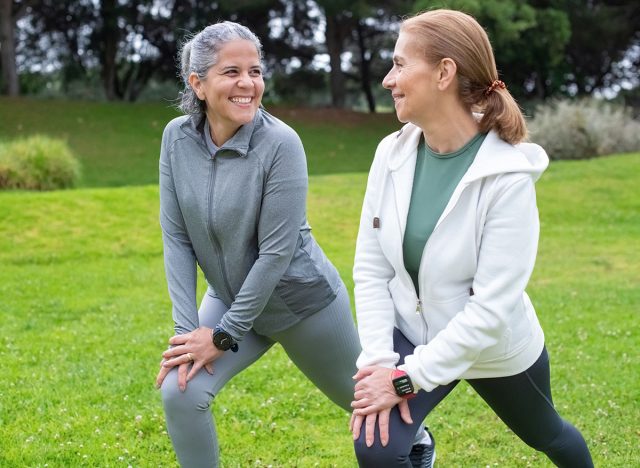8 Doctor-Approved Ways to Lose Weight "Without Counting Every Calorie"
Tired of obsessing over every calorie and still not seeing results? You're not alone. While counting calories works for some, it's not the only path to successful weight loss. Dr. Christie Risinger, a Board-Certified Internal Medicine Physician with over 15,000 hours of clinical experience, reveals simpler, evidence-based strategies that have helped thousands of her patients lose weight successfully. Here's what actually works, according to her research and clinical experience.
Start Small to Win Big
"Even a loss of 5% of your body weight has proven health benefits," Dr. Risinger says in her post. For someone weighing 250 pounds, that's just 12.5 pounds – an achievable goal that can make a real difference. She notes that this modest weight loss can even reverse type 2 diabetes and prevent pre-diabetes from progressing. "I don't say this to discourage anyone, but simply to give yourself some grace and help you to set realistic goals," she emphasizes.
Write It Down to Lose More

Instead of obsessing over exact calories, simply track what you eat. "A study in 2011 reviewed 22 studies and found a consistent relationship between self-monitoring and successful weight loss," Dr. Risinger explains. Start by writing down everything you eat and eliminate obvious sources of excess calories. "If you're drinking three beers a night, you're consuming 450 extra and unnecessary calories a day… that's about 50 pounds in a year," she warns.
Focus on Food Quality First

"When you do eat, the foods you're eating should be whole natural foods, meaning not processed and they're high in fiber, low in sugar," Dr. Risinger emphasizes. This simple approach often naturally reduces calories without the need for constant counting. She adds that "there are better health benefits if the protein source is from plants than when it's from animals."
RELATED: Woman Loses 72 Pounds in 7 Months Using Tirzepatide "I Can't Believe The Changes"
Try the Mediterranean Way

Among all diets, one stands out: "As a physician, the one plan I would recommend for anyone, whether they're trying to lose weight or not, is the Mediterranean diet." Dr. Risinger explains its simplicity: "This diet is high in fruits, veggies, whole grains, beans, nuts, seeds, and olive oil. It allows moderate amounts of fish, poultry, and dairy, but has little red meat." The benefits go beyond weight loss: "The Mediterranean diet was associated with a decreased incidence of Parkinson's disease, Alzheimer's disease, and multiple cancers."
Make Eating Mindful

Dr. Risinger emphasizes a crucial habit change: "I want to encourage everyone to make eating an activity that connects you with other people. Turn off the TV, gather around a table, eat with someone else, carve time out in your day and make it an intentional activity." This mindful approach naturally helps control portions without counting calories.
Use Apps Smartly

Technology can make weight loss easier without calorie obsession. "One meta-analysis of 41 studies with over 6,000 participants showed that the use of mobile apps helped reduce caloric intake, increase fruit and veggie consumption, and helped people lose about five pounds," Dr. Risinger reports. She recommends choosing "any app that has interactive features with personalized messages and goal setting."
Build Sustainable Movement Habits

Exercise shouldn't feel like punishment. "Physical activity should be done five to seven days a week for approximately 30 minutes or more," Dr. Risinger advises, but adds an encouraging note: "These minutes can be spread throughout the day." The goal is to find movement you enjoy and can stick with in the long term.
Create a Support System

Success rarely comes alone. "People have more success with weight loss when they regularly attend a weight loss program or accountability group," Dr. Risinger notes. She also recommends regular weigh-ins: "If you know early that you're gaining weight, you can make small adjustments." Importantly, research shows this habit doesn't increase anxiety or depression.
RELATED: 10 Steps This Fat Loss Coach Used to Drop 20 Pounds Without Gaining It Back
Your Simple Success Plan

Dr. Risinger's evidence-based takeaways:
- Set a realistic first goal of 5% weight loss
- Track what you eat without obsessing over calories
- Choose whole, unprocessed foods
- Follow Mediterranean-style eating patterns
- Make eating a mindful, social activity
- Use technology for support, not stress
- Move regularly in ways you enjoy
- Build a support system for accountability.
And if you enjoyed this article, take advantage of these 15 Quick Ways to Lose Body Fat Percentage in a Week.





